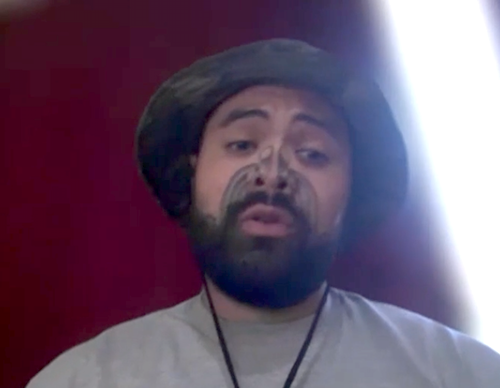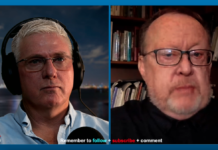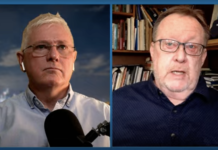Ngāti Kahungunu in Aotearoa New Zealand’s Hawkes Bay region has become the first indigenous Māori iwi (tribe) to sign a resolution calling for a “ceasefire in Palestine”, reports Te Ao Māori News.
Reporter Te Aniwaniwa Paterson talked to Te Otāne Huata, who has been organising peace rallies each Sunday at the Hastings Clock Tower.
“I have taken every opportunity at the iwi level to present the case that we should be standing in solidarity with the Palestinians,” Huata (Ngāti Kahungunu, Ngāti Porou, Te Arawa) said.
“This means we don’t support the ongoing bombing and slaughter of Palestinians in Gaza and also the brutal apartheid and occupation that’s happening in the occupied West Bank.”
This initiative started among Huata’s whānau who presented the case to their hapū Ngāti Rāhunga-i-te-Rangi, wider marae and eventually the iwi of Ngāti Kahungunu.
Huata has brought Palestinians into the conversation at iwi events, at hui-ā-motu with Te Kiingitanga and Rātana Pā, and subsequently on the Treaty Grounds.
“Then came to the hui-ā-iwi, last Friday, really with the intention of asking ‘what does kotahitanga look like?’ And what what can we present to the hui-ā-motu because Kahungunu will be hosting Hui Taumata on May 31 at Omahu marae.”
Māori iwi leadership in solidarity
Huata believes Māori cultural and iwi leadership can be used in solidarity with other minority groups and said it was important because all injustices were interconnected.
As part of the kaupapa, Huata choreographed a haka, written by his cousin Māhinarangi Huata-Harawira, “with the intention to not be flashy, or that you had to be the best performer”.

“Really the haka was about how we can all throughout the world stand in solidarity through this vessel of haka.”
Haka mō Paratinia is used at rallies and protests around Aotearoa.
The kaupapa was also brought to the stage this year in kapa haka regionals where Ngāti Kahungunu ki Heretaunga Pakeke carried Palestinian flags and messages of in support of a ceasefire.
“Tino rangatiratanga to me is not only self determination of our people, it is also collective liberation, so the oppressions of other marginalised Indigenous groups, are an oppression on everyone else,“ Huata said.
Republished from Te Ao Māori News/Māori Television.
Article by AsiaPacificReport.nz









